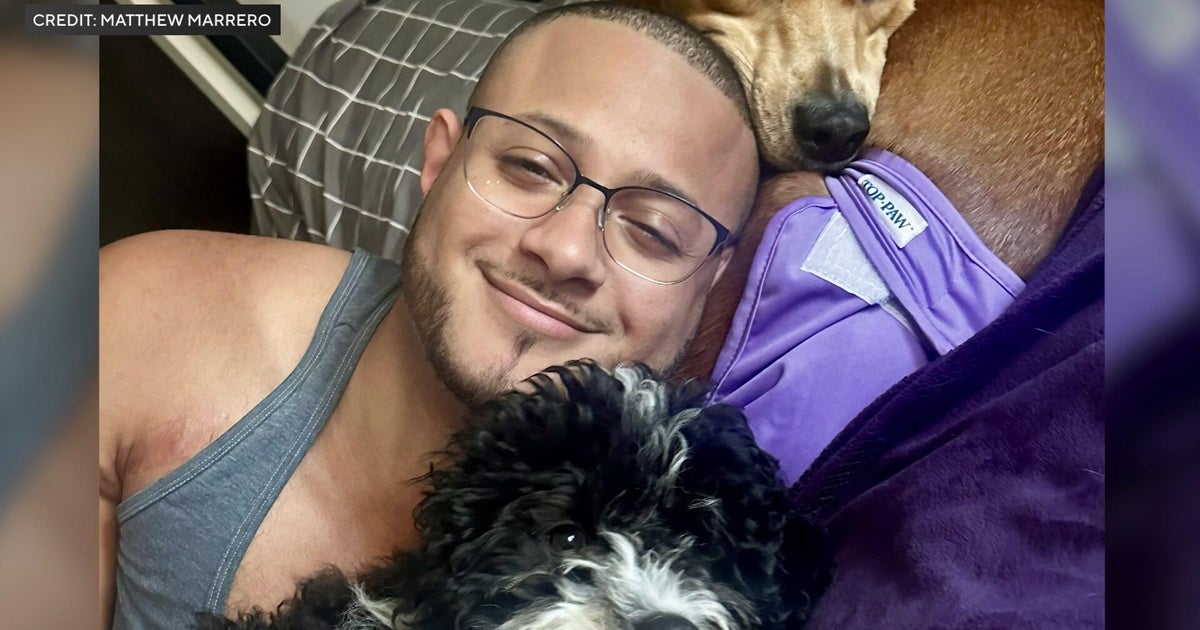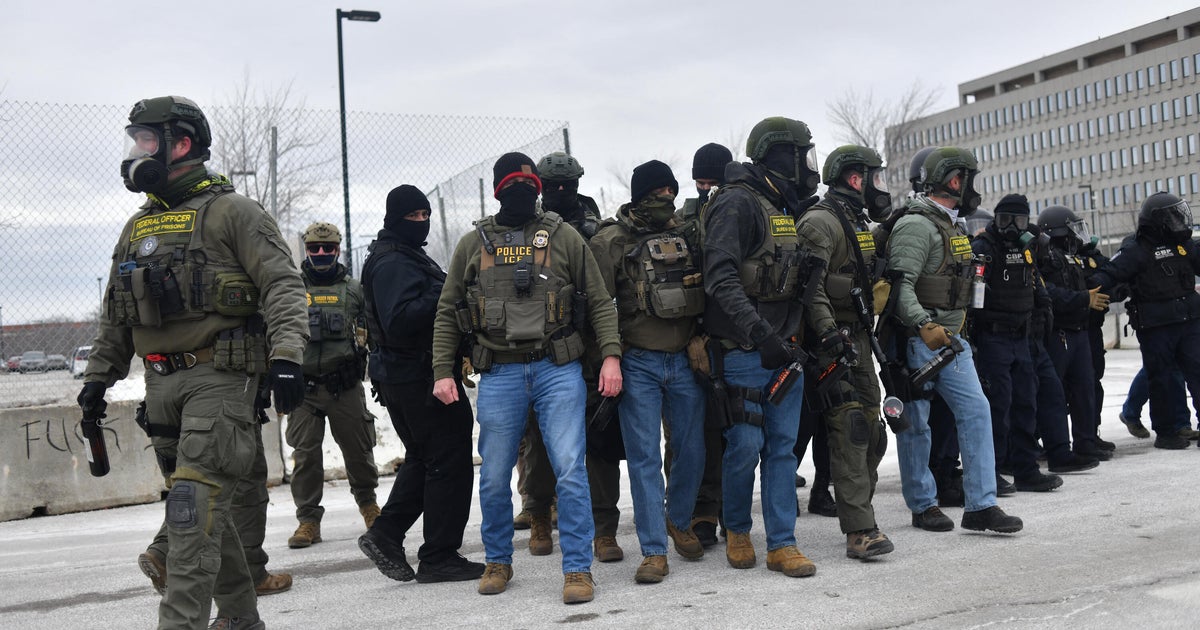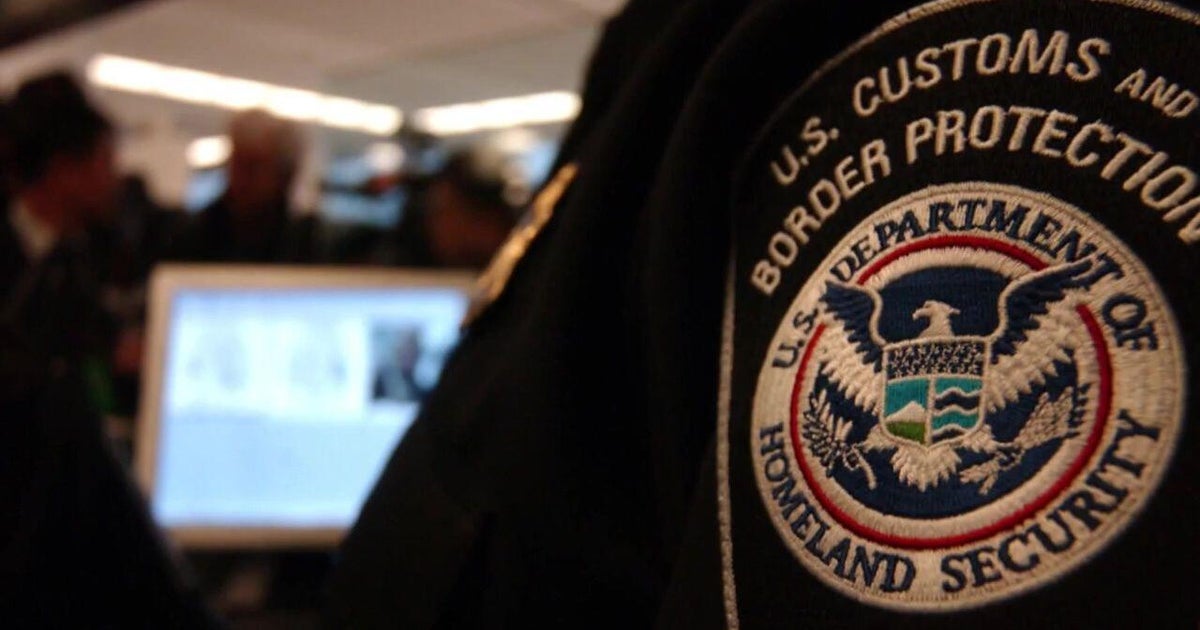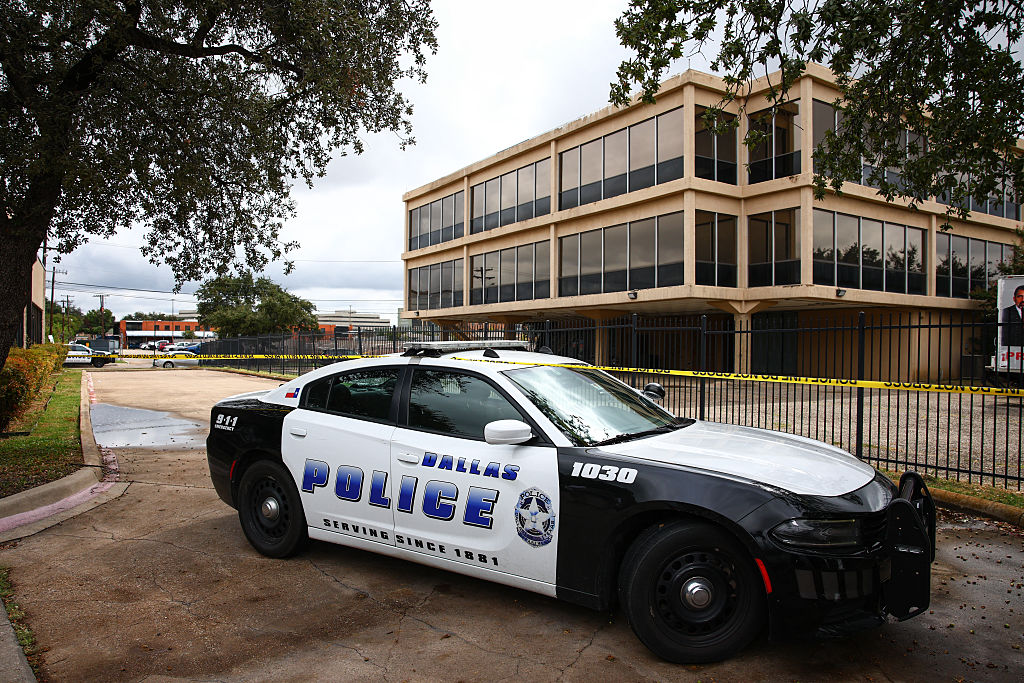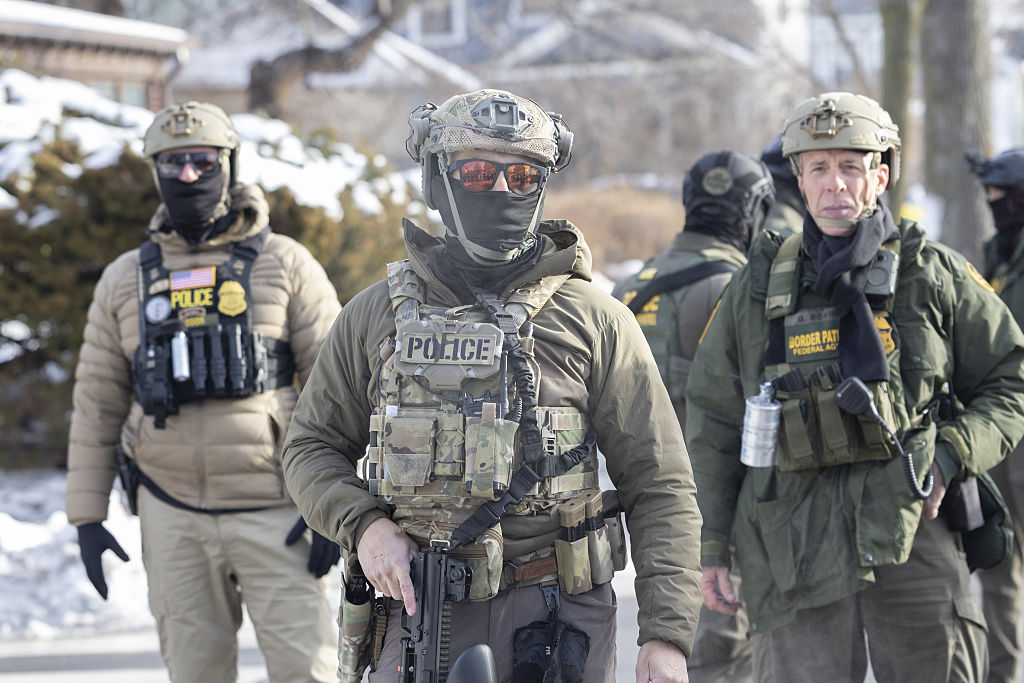"My son is in danger": Fear mounts over largest coronavirus outbreak in ICE detention
Immigration attorney Deron Smallcomb emailed several U.S. Immigration and Customs Enforcement officials on Wednesday, imploring them to brief him on the medical condition of his client, who was hospitalized. His first question was simple: "Is my client alive?"
"I demand to speak with my client, today," Smallcomb continued. "That is, assuming he is still alive."
Smallcomb soon learned what he had suspected for days. In a brief call later that day, his client, 41-year-old Noe Perez, said he had contracted the coronavirus.
That would make Perez, an immigrant from El Salvador, one of at least 986 immigrants who have tested positive for COVID-19 while in ICE custody, according to the agency's latest tally. He is also among at least 149 ICE detainees who have contracted the disease while detained at the Otay Mesa Detention Center, a prison in the San Diego area that is home to the largest coronavirus outbreak in the U.S. immigration detention system.
At least 11 ICE employees assigned to the facility and 24 staffers with the for-profit prison company that runs it have also tested positive for the virus, according to the immigration agency and CoreCivic, the private corrections firm. Additionally, at least 68 U.S. Marshals Service detainees awaiting criminal trial or sentencing at the facility have tested positive, according to a Justice Department official.
The facility housed the first and only known immigrant to have died of coronavirus complications while in ICE custody.
Perez's family in California, a mix of U.S. citizens and green card holders, fears for his life. Before he contracted the virus, he was suffering from pulmonary embolism, thrombosis, ulcers and a hernia. He also has to take daily blood thinners for the rest of his life.
"I'm very worried about my son. My son is in danger," his mother, Laura, told CBS News in Spanish. "We are all human beings. They are not animals. But they treat them like animals. They don't care about these boys."
Laura, the rest of the family and Smallcomb feel like they have been stonewalled by ICE as Perez's health has deteriorated. They said the agency did not inform them of Perez's hospitalization until they spent days demanding answers. In one of his numerous emails to ICE officials in the San Diego area, Smallcomb said he and the family only found out about Perez's hospitalization through an anonymous source.
Asked about the family's concerns, an ICE spokesperson said the agency could not comment on Perez's medical condition, citing state and federal privacy laws. The spokesperson said requests to call hospitalized detainees have to be reviewed and approved by an ICE official.
Though relieved that he was able to speak to Perez on Wednesday, Smallcomb said there's no sign ICE will release his client. On Tuesday, the parole request he submitted on behalf of Perez was denied. In its decision notice, which was reviewed by CBS News, ICE said Perez's "discretionary release" would not "conform to this agency's priority."
An ICE spokesperson did not elaborate on why the agency denied the parole request. Notices typically state whether the agency believes a detainee could be a flight risk or a threat to public safety if released.
Smallcomb believes ICE is not releasing his medically vulnerable client because of a conviction for assault with a semi-automatic firearm in 1998. But he said his client has already paid his debt to society by serving a 22-year prison sentence. Perez was convicted as a teenager, according to California court records.
ICE confirmed it arrested Perez in January after he finished his prison sentence and is seeking to deport him to El Salvador, which he fled with his family in 1986 because of the civil war there.
Like Perez's family, Smallcomb fears for his client's life, saying he should be working to prevent Perez's deportation — not his death.
"A 41-year-old male with serious underlying conditions and daily medications to stay alive, that's the first guy you test, that's the first guy you quarantine, that's the first guy you release," Smallcomb told CBS News.
During his phone call with Perez on Wednesday, Smallcomb said he learned his client has been transferred to two San Diego-area hospitals since last Friday, after days of complaining of pain in his chest and lower back, excessive sweating and trouble breathing. Perez had been tested for coronavirus earlier last week and received the positive result the day he was hospitalized, Smallcomb said.
Since then, Perez has been diagnosed with pneumonia and two "black clouds" on his lungs, Smallcomb said, recounting the conversation with his client. Perez has begun an antibiotic regimen and remains in serious pain, his lawyer added.
Laura has been distraught since her son's health deteriorated. Not being able to talk to him on Mother's Day was particularly difficult. She faults ICE for his current condition, saying he felt ill for days before being taken to a hospital. "If they had acted on time, my son would not be in the hospital."
"What is ICE doing? Letting people die?" she asked.
Laura has found some solace in talking to another immigrant family in California who recently faced a similar situation.
"My heart still hurts"
Rosa is still hurting from her brother's death. "My heart still hurts. I can't sleep at night because I'm desperate," she told CBS News. "I want to turn back time."
She called Laura after the advocacy group Pueblos Sin Fronteras told her about Perez's situation. "She's also devastated," Rosa said, referring to Laura.
Rosa, a Los Angeles resident who is also from El Salvador, lost her brother last week. Carlos Ernesto Escobar Mejía died of coronavirus complications at a San Diego-area hospital after being transferred there in late April from the Otay Mesa detention center, where he had been held by ICE since January.
Like Perez, Escobar Mejía fled El Salvador as a child during the 1980s. They both had run-ins with the law that made them targets for deportation. Escobar Mejía also had preexisting medical conditions and U.S. citizen family members clamoring for his release.
Rosa said she does not want other immigrants detained at the Otay Mesa facility to meet her brother's fate.
"My heart still aches. I don't want that to happen to other families. Please free them," she said, in a plea to the U.S. government.
According to an ICE spokeswoman, ICE has released more than 900 detainees it determined were at increased risk of severe illness if infected with the coronavirus because of their age or medical conditions. The agency has also been required to free more than 190 detainees under court orders stemming from lawsuits filed by advocates across the country.
Because of an order by a federal judge in San Diego, ICE has released 70 of the roughly 130 Otay Mesa detainees it identified as medically vulnerable, according to court filings. Last week, the same judge denied a separate request to order the release of at-risk U.S. Marshals detainees.
Bardis Vakili, an attorney with the San Diego branch of the American Civil Liberties Union working on both cases, said some immigrant detainees in the vulnerable categories are still waiting for medical clearance to be released. But he said the agency has indicated it does not intend to release about 35 medically at-risk detainees because of their criminal records.
Vakili said ICE needs to continue reducing the number of immigrants detained at the Otay Mesa facility, which stopped taking new detainees in April. ICE said it continues to hold roughly 544 detainees at the San Diego-area detention center.
"The main concern here is that these are buildings where everyone is in a congregate environment. They share bathrooms, showers, sleeping cells," Vakili told CBS News. "They are packed tightly together."
A spokesperson for CoreCivic said the company is working with ICE and the U.S. Marshals Service to implement measures to protect detainees and personnel at Otay Mesa. Meals are no longer served in communal settings, movement has been curtailed, masks have been provided to staff and detainees, medically at-risk individuals have been identified and those who have tested positive are being quarantined together, the spokesperson added.
Staff at the facility have also been instructed to follow certain personal hygiene, social distancing and cleaning protocols. Personnel undergo temperature checks and are asked about potential symptoms of infection before entering the facility, the CoreCivic spokesperson said.
As coronavirus cases among detained immigrants have continued to grow consistently, advocates have urged ICE to further downsize its nationwide detainee population, which stood at nearly 28,000 last week, saying the agency is still detaining immigrants with medical conditions and others who don't pose a threat to the public.
In a letter Thursday, the House Oversight Committee accused ICE of not taking the crisis "seriously," urging the agency to release all asylum-seekers and "non-violent people" in its custody.
In a court filing last week, the agency said it had identified more than 4,400 detainees considered to be at increased risk of severe illness or death if contracting the coronavirus under guidelines set by a federal judge in California. The agency also continues to detain more than 4,800 asylum-seekers who have demonstrated credible fear of being persecuted or tortured in their home countries.
Elsy, who requested that her last name not be published so she could speak freely, is one of many asylum-seekers held by ICE at Otay Mesa. She said she fled El Salvador last year after been threatened and marginalized because of her identity as a lesbian woman. She was required to wait in Mexico under the Migrant Protection Protocols program. She was only allowed into the U.S. after proving to an asylum officer that she had been persecuted while waiting in Mexico.
After the group representing her, the Immigrant Defenders Law Center, helped Elsy find a sponsor in the U.S., ICE granted her parole, but it conditioned her release on her paying a $15,000 bond. Because advocates have been unable to raise the funds, Elsy has been detained at Otay Mesa for roughly eight months. She said she has grown increasingly frustrated during the pandemic, feeling powerless to protect herself from the coronavirus inside a facility plagued by the contagion.
"I came fleeing to prevent something from happening to me in my home country," Elsy told CBS News. "Now, I'm here in the U.S. in a detention center, but it's still very difficult because I don't know if I will come out of here alive or dead."



